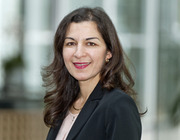The current war in the Middle East following the terrorist attack on Israel by Hamas on October 7 is having an impact in Germany – and revealing cracks in German society. One cause of concern is the anti-Semitism which is being expressed more and more openly and which has been accompanied by an increase in anti-Semitic attacks. In addition to left-wing and right-wing anti-Semitism, public debate has focused on anti-Semitism among the Muslim population in particular. At the same time, however, Muslims are also experiencing a high degree of hostility.
How can we prevent anti-Semitic and anti-Muslim prejudices and hate speech from intensifying during the current political crisis? How can we ensure social cohesion in the present situation? And how can we successfully counter all types of inhumane attitudes, including anti-Semitic and anti-Muslim beliefs?
Against the background of these pressing questions, our factsheet on “Anti-Semitism, Racism and Social Cohesion” offers initial insights into the findings from our forthcoming study on anti-Semitic and anti-Muslim attitudes in Germany. The basis for the study is the 2023 Religion Monitor, which provides international comparative data. Data for the Religion Monitor were collected before the current escalation of the conflict in the Middle East, but shed light on important underlying factors.






